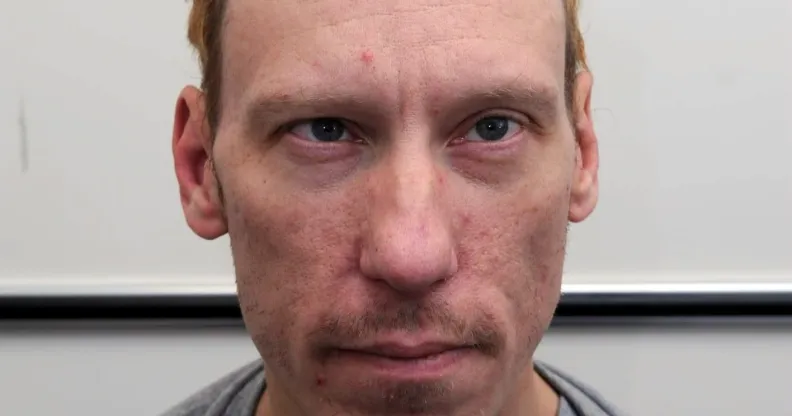Met Police to face fresh investigation over mishandling of Stephen Port murders

Stephen Port killed four young gay men between June 2014 and September 2015.(Metropolitan Police)
Britain’s police watchdog, the IOPC, will reinvestigate the Metropolitan Police’s handling of the murders of four men by ‘Grindr killer’ Stephen Port.
The Independent Office for Police Conduct said on Thursday (23 June) that it will re-scrutinise the Met’s investigation, after a scathing inquest in 2021 found there were “failures which cannot be overlooked” riddling the force’s investigation.
Stephen Port murdered at least four young men – Anthony Walgate, Gabriel Kovari, Daniel Whitworth and Jack Taylor – over a 16-month-long period that shocked and appalled Britain’s LGBTQ+ community between 2014 and 2015.
Fresh inquests into the murders in 2021 heard a friend of one victim argue officers in the case were guilty of “institutional homophobia” as they shrugged off evidence even as friends and family of victims begged them to investigate Port.
The jury was told by coroner Sarah Munro QC that they could not consider homophobia or discrimination by officers as a contributing factor in the deaths of the young gay men.
Announcing the re-investigation, IOPC regional director Graham Beesley said: “In this case, the reinvestigation process has identified evidence which meets both the significant new information and material flaw categories, and we believe a proportionate – but thorough – new investigation is in the public interest.”
“Due to the size of the original investigation and the amount of information it obtained, this has been a complex task. This has been necessary to ensure the reinvestigation decision process was in line with legislation and that any subsequent decisions on reinvestigating were based on a thorough and robust examination of the information available.
“A matter can only be reinvestigated by the IOPC if we are satisfied that the original investigation was materially flawed in a manner which had an impact on the subsequent decisions made on discipline, performance and/or referral to the Crown Prosecution Service, and/or there is ‘significant new information’ that requires further investigation.
“There must be a real possibility that the new information, had it been available, would have led wholly or partly to different decisions on the outcomes of our investigation. Lastly, it must be considered in the public interest to reinvestigate.
“In this case, the reinvestigation process has identified evidence which meets both the significant new information and material flaw categories, and we believe a proportionate – but thorough – new investigation is in the public interest.”
All of Port’s victims were in their 20s and died from overdoses of the date drape drug GHB, also known as G or liquid ecstasy.
He trawled on queer dating apps like Grindr and FitLad to find his victims before lurng them to his one-bedroom apartment in Barking, east London. Port then spiked the men with GHB, such as in their drinks or injecting them with it.
The Central Criminal Court sentenced Port to life in prison in 2016.

The four men were murdered by Stephen Port between June 2014 and September 2015. (Justice For Our Murdered Boys)
Speaking on behalf of the victims’ families, solicitor Neil Hudgell of Hudgell Solicitors told PinkNews that the IOPC reopening the case was the “only logical decision” that has given them renewed hope.
“The original IOPC report was hindered by a wall of silence, given that all but one of the 17 officers questioned gave ‘no comment’ interviews,” he said. “Our hope now is that the IOPC will have a lot more to go on.”
Questions remain for the families nearly a decade on, Hudgell said. They claimed Met officials told the media that the coroner found no evidence of homophobia within their ranks – this simply wasn’t the case.
“The inadequate investigations by the Metropolitan Police into the four deaths is one of the most widespread institutional failures in modern history, exacerbated by a woeful lack of remorse, regret or sympathy displayed at the inquests by some of the officers involved,” Hudgell added.
For now, the families can only wonder how things could have turned out differently for the victims.
Walgate, a 23-year-old fashion student, was found dead and slumped against the wall of Port’s house. Port had anonymously phoned the emergency services and later lied to police in a witness statement – he claimed he came home to find Walgate dead when he had actually hired him as an escort.
Despite this, investigators did not treat Walgate’s death from a fatal overdose of GHB date drape drug GHB as suspicious. had they done this, the families said, Port may have not been free to go on and kill Kovari, Whitworth and Taylor.
Police would do the same with Kovari, not treating his death from a GHB overdose in the same area as Walgate as suspicious. A dog walker found him dead in the churchyard at St Margaret of Antioch, Barking, right next to Port’s flat.
Port would later go on to fake a “suicide note” for the third and youngest victim, Whitworth – again, despite being found in the same area, in the same church and by the same dog walker as Kovari, the Met didn’t link the three deaths together or to Port.
They even took Port’s forged suicide note at face value.
“The families’ strongly held belief is that the police’s actions were, in part, driven by homophobia,” Hudgell said.
“Had four, white, heterosexual girls been found dead in the same manner as Anthony, Gabriel, Daniel and Jack,” he added, “then the police’s actions and the likely outcomes would have been different.”

